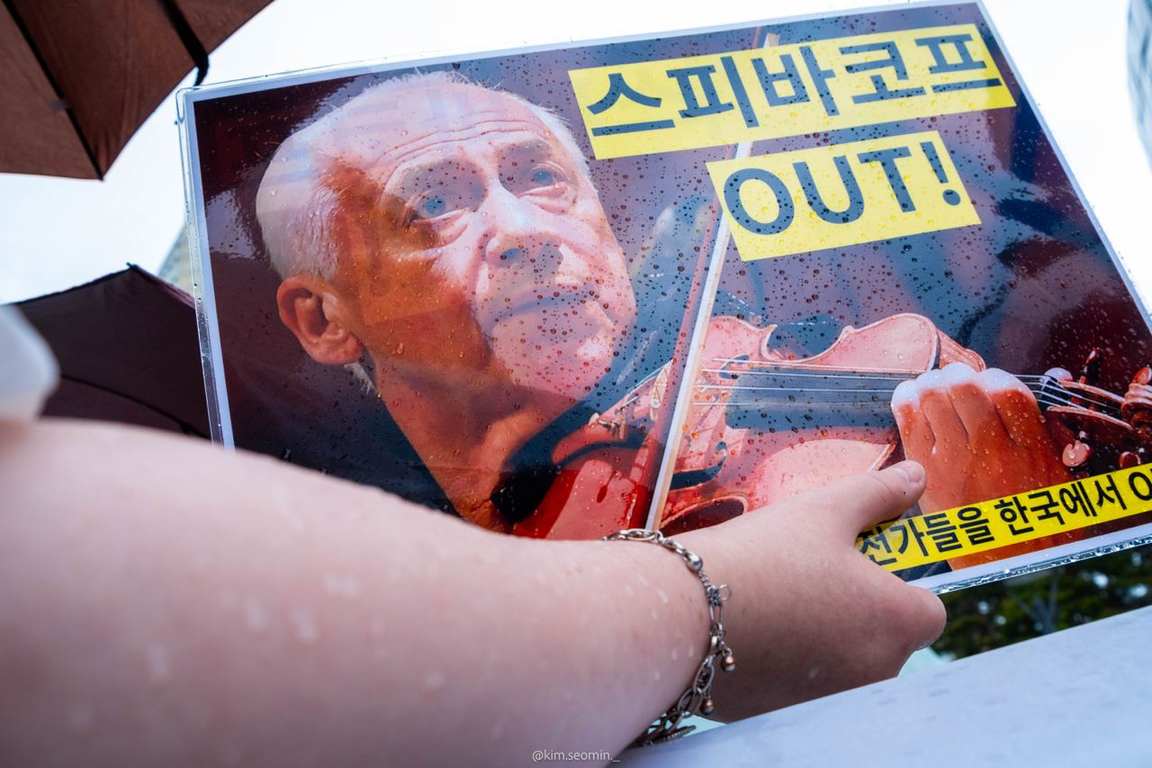Lacking major victories in its war in Ukraine, euphemized as a "special military operation," and constantly suffering losses on the cultural front, Russian propaganda needed some kind of breakthrough for their "Victory Day," a major staple in the modern Russian ideology driving its war against Ukraine.
Just in the past month, the staging of the ballet Modanse featuring prima ballerina Svetlana Zakharova was canceled in South Korea, as well as gala concerts of the Bolshoi Theatre ballet artists under the direction of Valery Gergiev.
Performances by Mariinsky Theatre ballet dancers were canceled in the USA, and a concert by Russian opera singer Anna Netrebko was canceled in Switzerland.
New York ballet bala drops Russian Mariinsky theater artists after “bloody tutu” protest
Fearing protests and cancellation, the participation of Vladimir Spivakov, a vocal supporter of Vladimir Putin and one of the top-paid artists in Russia, in the Classical Bridge International Music Festival in Seoul was kept strictly confidential. There was no information about the concert on Vladimir Spivakov's website, and there were no mentions in the Russian-language press.
Spivakov, viewed as an artist legitimizing Russia's aggression, himself posted the festival poster on his Instagram only after completing his performance in Seoul and after he telegraphed to Moscow about the breakthrough on the cultural front.
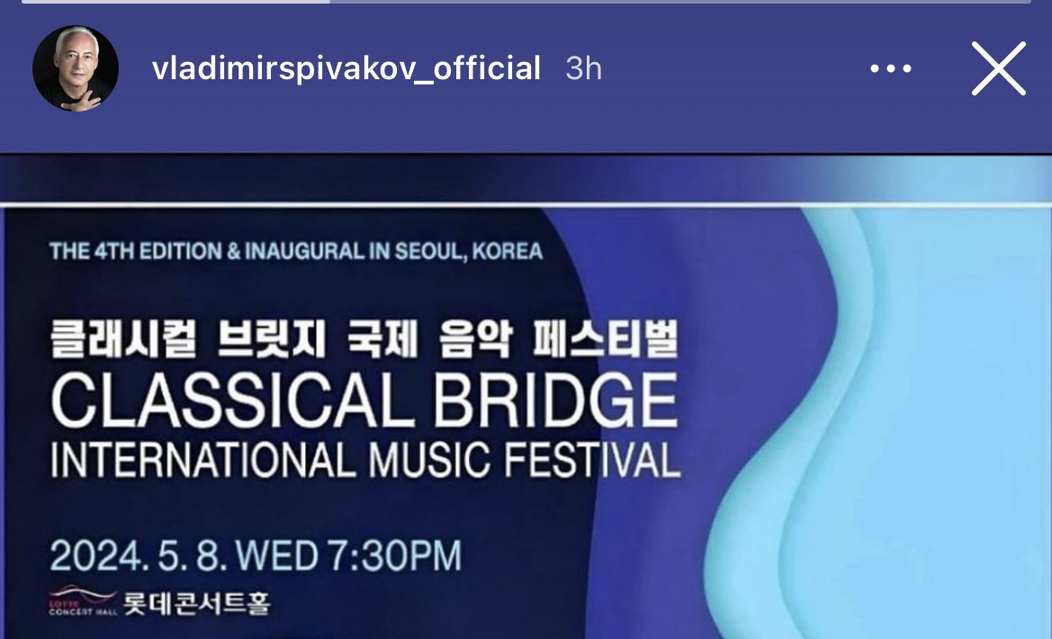
A few hours later, Russian state media were already filled with triumphant reports.
Russian state-owned news agency TASS: “The concert featuring People's Artist of the USSR Vladimir Spivakov was successfully held in Seoul as part of the Classical Bridge International Music Festival, despite Ukraine's efforts to cancel it. The South Korean audience warmly welcomed the Russian maestro, a person from his inner circle informed a TASS correspondent.”
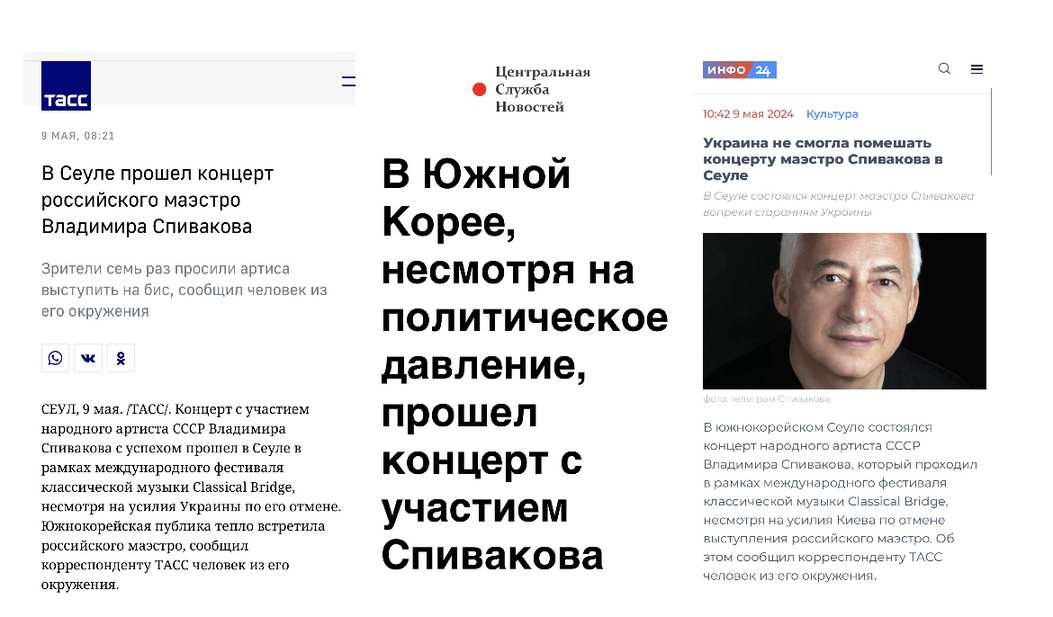
Russian state-owned news agency TASS: ”The Russian Embassy expressed confidence that Russia and the Republic of Korea will continue their mutually beneficial cultural cooperation, and attempts to politicize art will be doomed to failure. This is how Russian diplomats commented on the participation of Russian conductor and violinist Vladimir Spivakov in the international festival in Seoul.”
Russian state-owned news agency TASS: “It is especially gratifying that the maestro successfully performed in Seoul, despite attempts by diplomatic representatives of Ukraine and a number of Western countries accredited in the Republic of Korea to prevent Russian-Korean cooperation in the cultural sphere.”
All other state-owned and state-controlled media retold the TASS reports.
Activists from Arts Against Aggression learned about the concert scheduled for 8 May from musicians participating in the festival.
In March, Arts Against Aggression contacted Klara Min, the director of New York Concert Artists & Associates, the organizer of the Classical Bridge International Music Festival in Seoul, and informed her that Arts Against Aggression has been protesting against conductor and violinist Spivakov since 2014 when he signed a letter in support of the annexation of Crimea and aggression against Ukraine.
One of the top-paid artists in Russia, he is a member of the Presidential Council on Culture and Arts, along with Putin’s top propaganda artists: conductor Valery Gergiev, pianist Denis Matsuev, and ballerina Svetlana Zakharova.
In response, Klara Min blocked Arts Against Aggression on social media. Subsequently, Arts Against Aggression wrote an open letter to the administration of the Lotte Concert Hall asking to reconsider the decision to give a stage to Putin propaganda artist Vladimir Spivakov and warning that his concert would be a victory for Russian cultural propaganda and a gift to Putin for Victory Day. This appeal went unanswered.
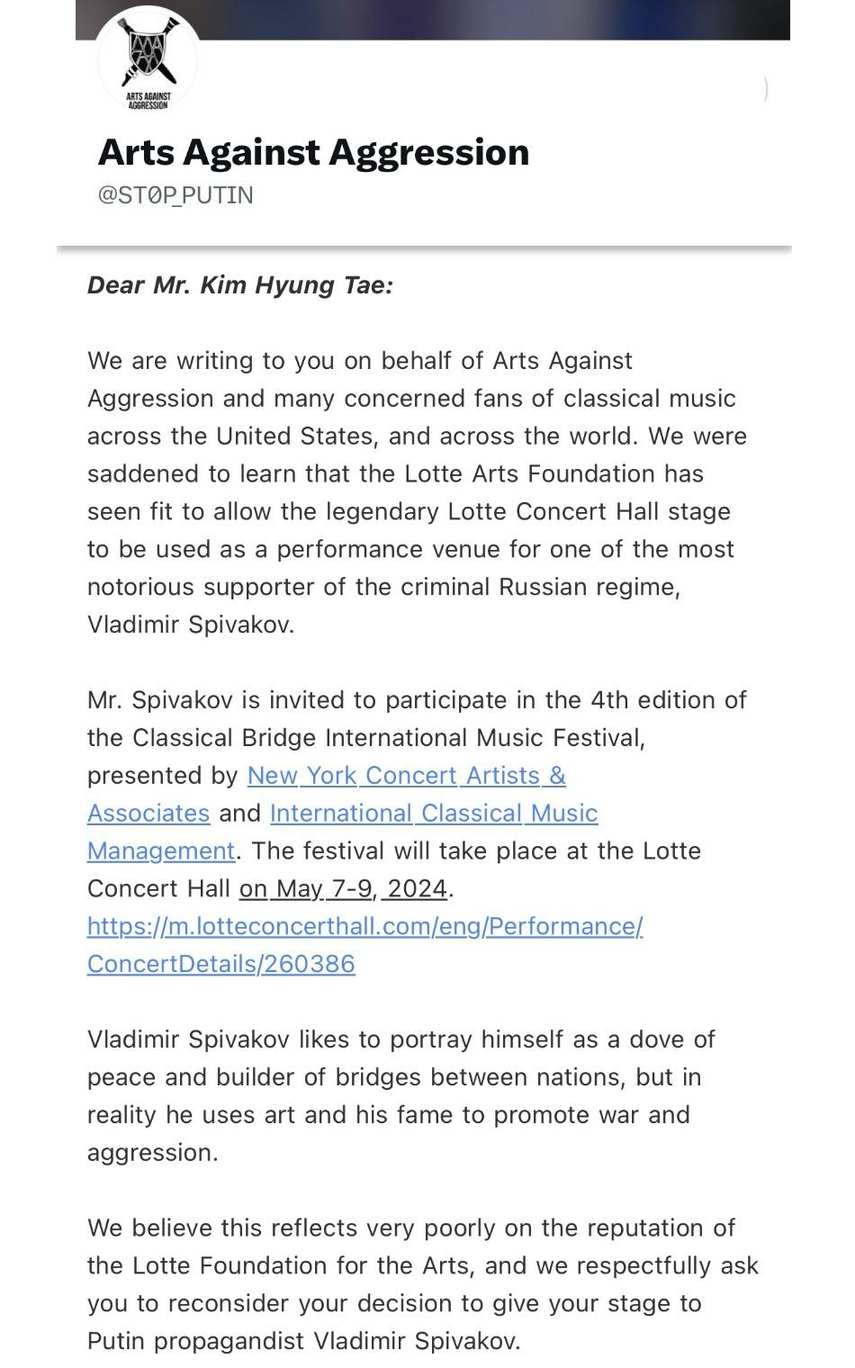
For a month, the community of anti-war-minded Russians in South Korea, VoicesInKorea, held weekly protests outside the Lotte Concert Hall in Seoul, demanding the cancellation of Vladimir Spivakov's concert.
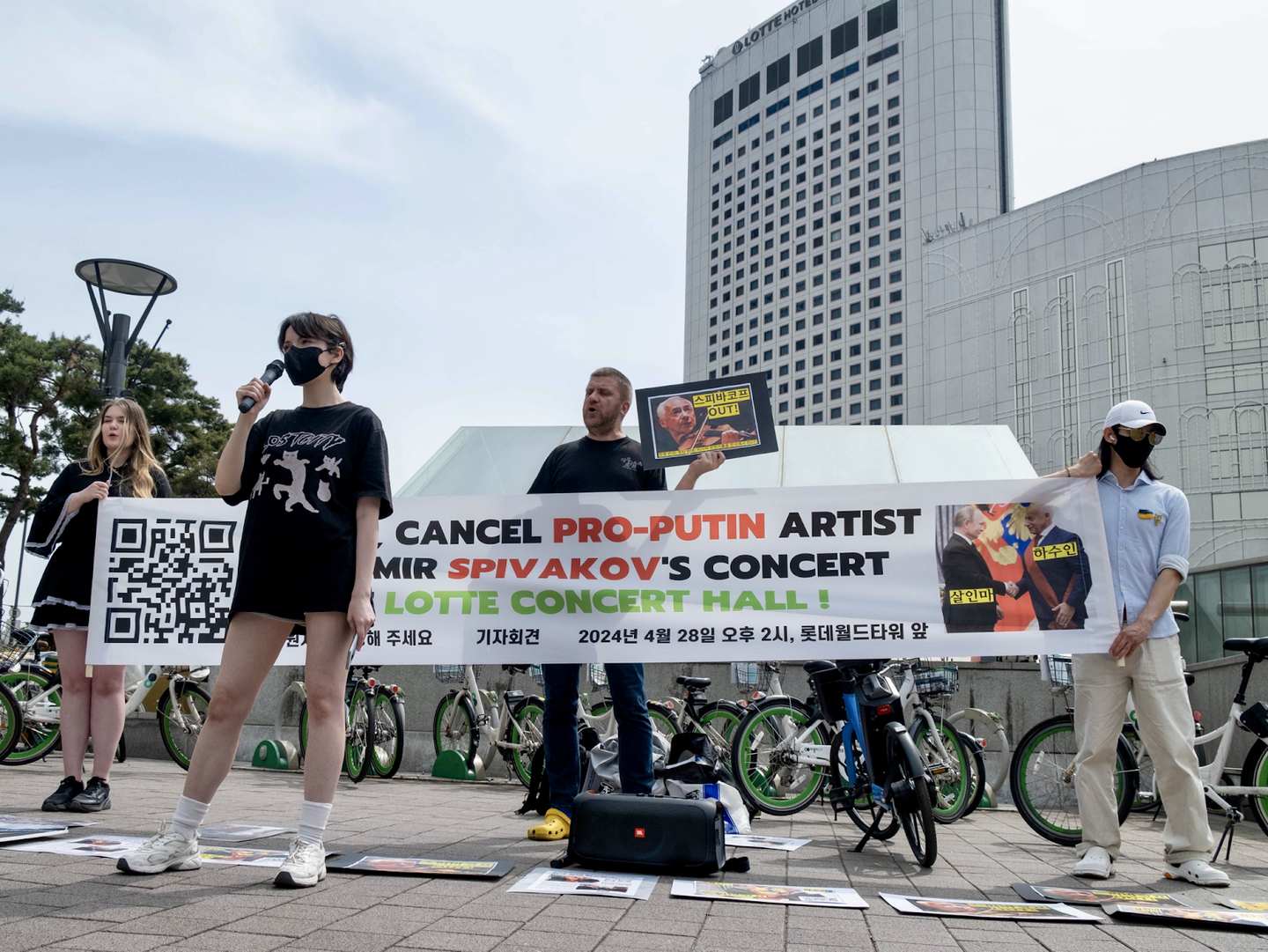
The Korean TV channel SBS News reported on the protests of activists in one of its news broadcasts.
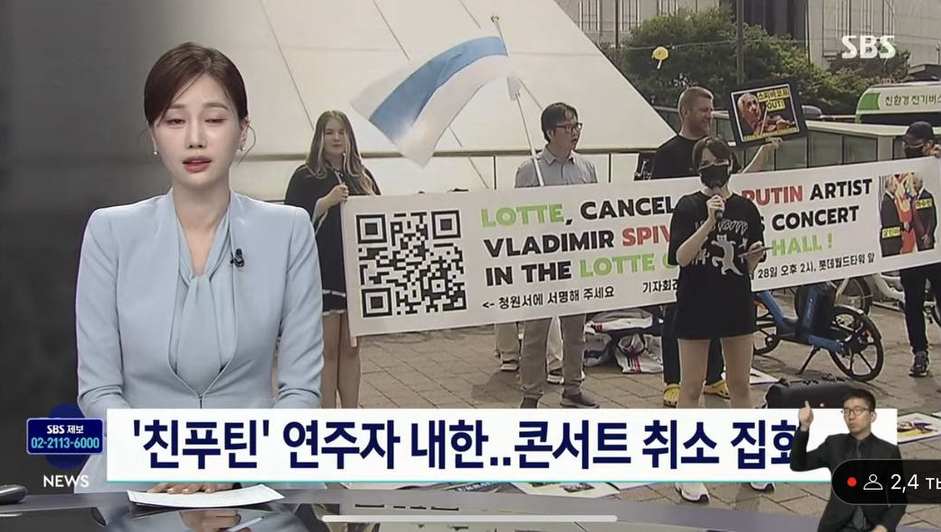
The petition to cancel the concert gathered around 400 signatures. On 3 May, The Korea Times reported that the Ukrainian Embassy in Korea also demanded the Russian propagandist's concert be canceled.
Nevertheless, the performance of the Russian violinist Vladimir Spivakov, together with Canadian pianist Hélène Mercier, did take place. Another protest by activists from VoicesinKorea, the fourth one to date, also occurred.
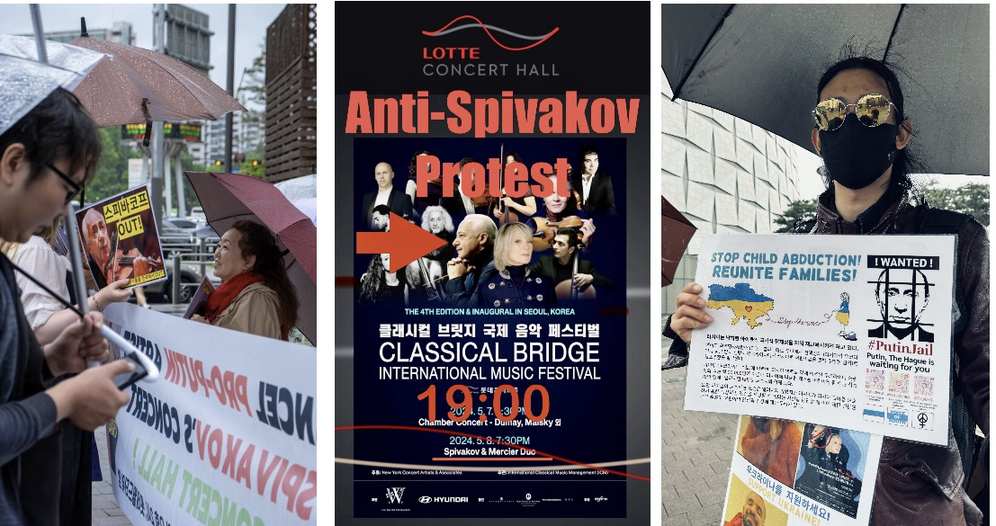
The choice of the Lotte Concert Hall for Vladimir Spivakov's performance was not coincidental. Unlike many international and Korean companies that left Russia immediately after the start of Russia's full-scale invasion of Ukraine, the Lotte corporation not only did not leave Russia but even expanded its business there, with the company's profit increasing by more than 50% in 2023.
The choice of pianist Hélène Mercier as Vladimir Spivakov's partner was likely not a coincidence. Hélène Mercier is the wife of businessman Bernard Arnault, the owner of LVMH. Bernard Arnault is well known for his connections to the Russian business world, and in September 2023, the Paris prosecutor's office announced that deals between Bernard Arnault and Russian businessman Nikolai Sarkisov regarding real estate in the Courchevel Ski Resort are being investigated for potential money laundering.
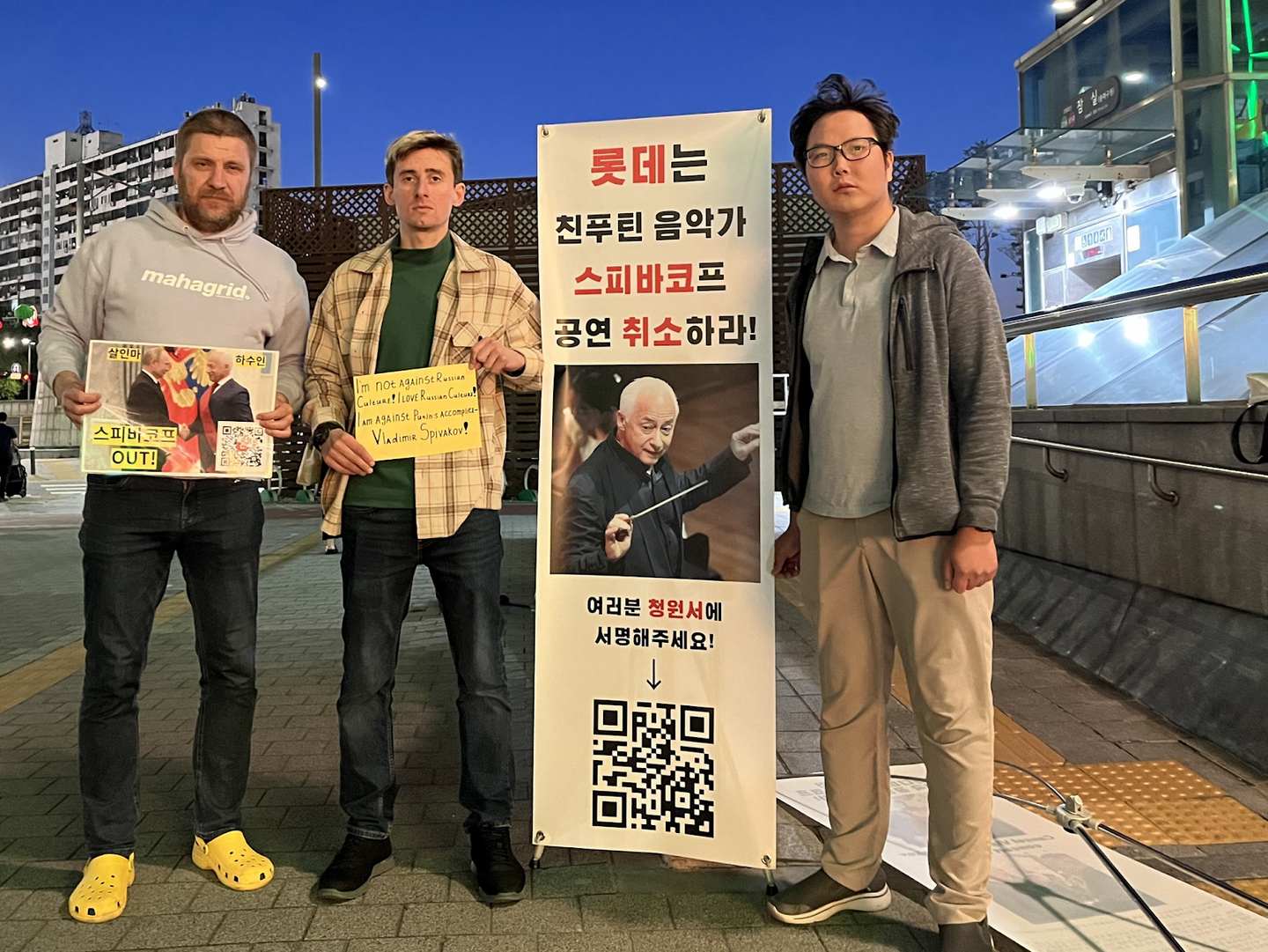
The question arises: why did the American non-for-profit organization New York Concert Artists & Associates become a tool for Russian cultural propaganda?
Arts Against Aggression originated from a protest against Vladimir Spivakov’s performance at Harvard University in 2014 and has since grown into an international movement against Russian cultural propaganda. Now Arts Against Aggression sees its mission not only in combating Russian propaganda but also in exposing Western institutions and their leaders who, wittingly or unwittingly, contribute to Russian cultural propaganda.
Related:
- Korean activists demand to drop Putin-linked Spivakov from music festival
- New York ballet bala drops Russian Mariinsky theater artists after “bloody tutu” protest
- The Art of Creative Protests: Netrebko and Gergiev case study
- Boston activists holding war boosters accountable for using their art to support Putin’s aggression
Editor's note. The opinions expressed in our Opinion section belong to their authors. Euromaidan Press' editorial team may or may not share them.
Submit an opinion to Euromaidan Press

